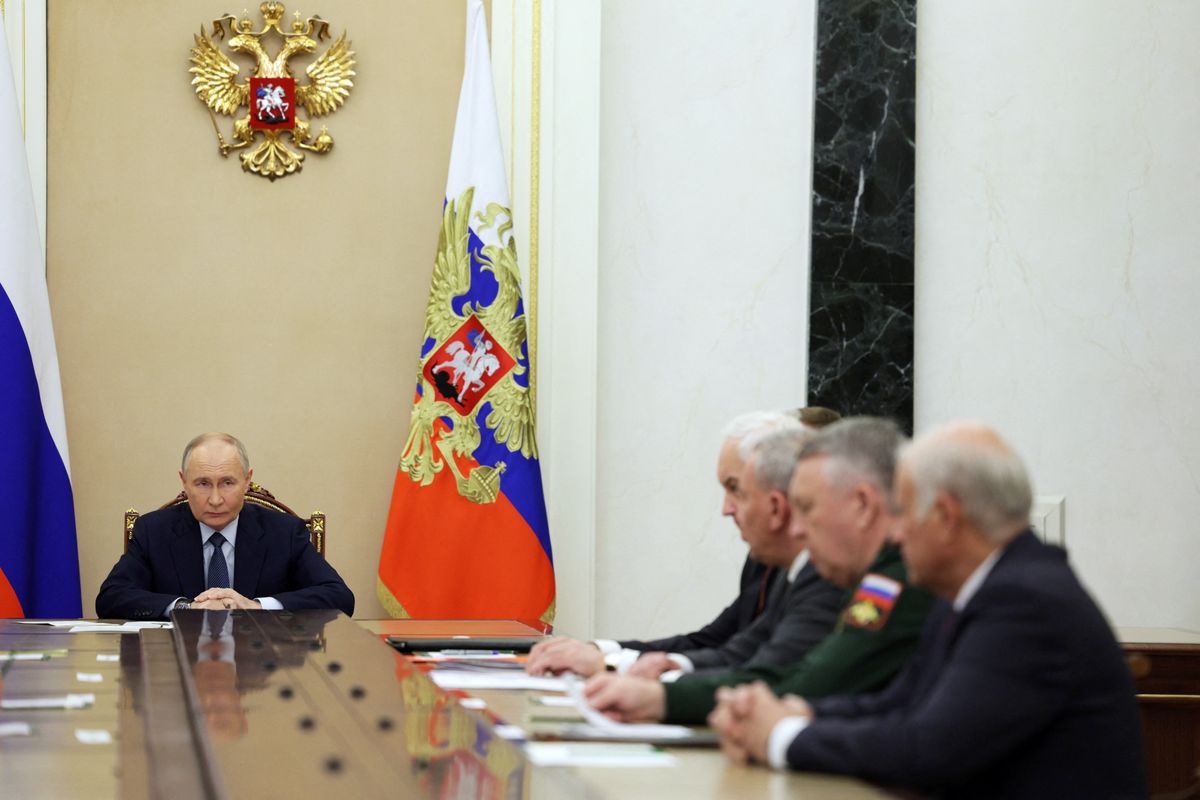Putin says Russia will keep testing new hypersonic missile in combat
Russian president defends first use of a new missile, citing Ukraine's strikes with US and UK-supplied weapons
Reuters
News Agency Partner
Reuters is a leading source of news and information, delivering fact-based reporting and expert analysis on international events and trends.

Russian President Vladimir Putin chairs a meeting with the Ministry of Defence leadership, representatives of the defense industry and missile systems developers, in Moscow, Russia November 22, 2024.
Reuters
Putin says Russia has more Oreshnik missiles
Missile was fired for first time into Ukraine
Rise in tension between Moscow and West
Ukraine's Zelenskiy calls use of missile a severe escalationPresident Vladimir Putin said on Friday that Russia would keep testing its new Oreshnik hypersonic missile in combat and had a stock ready for use.
Putin was speaking a day after Russia fired the new intermediate-range weapon into Ukraine for the first time, a step he said was prompted by Ukraine's use of U.S. ballistic missiles and British cruise missiles to hit Russia.
The Kremlin leader described the missile's first use as a successful test, and said more would follow.
"We will continue these tests, including in combat conditions, depending on the situation and the nature of the security threats that are created for Russia," he said in televised comments to defense officials and missile developers.
"Moreover, we have a stock of such products, a stock of such systems ready for use."
Intermediate missiles have a range of 3,000-5,500 km (1,860-3,415 miles), which would enable them to strike anywhere in Europe or the western United States from Russia.
Security experts said the novel feature of the Oreshnik missile was that it carried multiple warheads capable of simultaneously striking different targets – something usually associated with longer-range intercontinental ballistic missiles designed to carry nuclear warheads.
Ukraine said the missile reached a top speed of more than 13,000 kph (8,000 mph) and took about 15 minutes to reach its target from its launch.
The firing of the missile was part of a sharp rise in tensions this week as both Ukraine and Russia have struck each other's territory with increasingly potent weapons.
Moscow says that by giving the green light for Ukraine to fire Western missiles deep inside Russia, the U.S. and its allies are entering into direct conflict with Russia. On Tuesday, Putin approved policy changes that lowered the threshold for Russia to use nuclear weapons in response to an attack with conventional weapons.
Severe escalation
Ukrainian President Volodymyr Zelenskiy said Russia's use of the new missile amounted to "a clear and severe escalation" in the war and called for strong worldwide condemnation. He said Ukraine was working on developing new types of air defense to counter "new risks".
The Kremlin said the firing of the Oreshnik was a warning to the West against taking further "reckless" actions and decisions in support of Ukraine.
The Oreshnik was fired with conventional, not nuclear warheads. Putin said it was not a strategic nuclear weapon but its striking power and accuracy meant that its impact would be comparable, "especially when used in a massive group and in combination with other high-precision long-range systems".
He said the missile was incapable of being shot down by an enemy.
"I will add that there is no countermeasure to such a missile, no means of intercepting it, in the world today. And I will emphasize once again that we will continue testing this newest system. It is necessary to establish serial production," he said.









Comments
See what people are discussing